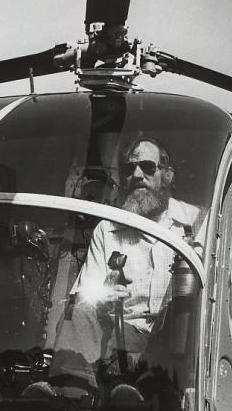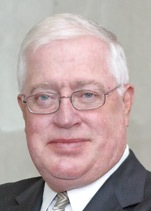"Hire people of youth and vitality, people who are chronic grumblers about the status quo." Warren Bennis
Online is a major part of our business and business is very, very good. The Top Online advertisers (via OMMA -2005/TNS Media Intelligence, in Millions):
- Vontage 275,753
- Time Warner 169,745
- GUS Plc 166,481
- Dell 155,414
- Verizon 143,546
- Classmates 142,874
- Netflix 136,384
- General Motors 110,480
- Hewlett-Packard 107,959
- Microsoft 103,032
The TNS data does not include search or classifieds, $5B and $2B markets respectively in 2005.
Never has there been a better time to get serious about your Online ad initiatives; beginning to look a lot like 1999 only better.
Robert Young writing Social Networks are the New Media...
Think of this way… what if “American Idol” had been produced solely by the capabilities of the contestants themselves, without the expertise and talent of the show’s producers, directors, writers, etc. As talented and entertaining as the contestants are, the resulting production quality, the level of emotional engagement, viewership/ratings and monetization potential of the full package would likely be far inferior to what we all see on the air today. Well, social networks should be seen in a similar way… people want to express themselves and the platforms that allow them to do so with the most creativity and production value, are the ones that people will flock to. Check out the entire writing via Om Malik here
The Death Star blowed up and Darth phones it in...excellent bit from AdultSwim's Robot Chicken gang, highly recommended, via YouTube, while it lasts, here
Congrats and bravo to Brian Tierney and his associates for doing what few considered possible, putting together a local group to buy The Inquirer (Philadelphia Newspapers Inc) from the McClatchy Company. Kudos to Inquirer staff writers Joseph N. DiStefano and Larry Eichel, they have done an outstanding job providing the made-for-tv-movie back story...
Tierney also called Leslie A. Brun, semiretired founder of Philadelphia-based Hamilton Lane Advisors, which helps pension plans manage their money. Brun agreed to put several million of his own dollars into the deal.
"At the beginning," said Brun, "it felt like it was just Brian and me."
Brun, whose father once started a local newspaper for New York's Haitian community, knew that dailies were struggling. But Brun found Tierney's pitch convincing. Tierney called the papers "an underleveraged brand," suggesting that Knight Ridder's cost-cutting had "left too many advertising dollars on the table." Tierney warned Brun and other prospects that "the returns aren't going to be up to the same level as typical private equity," but they would be respectable. And he noted the benefits to Philadelphia of improved news coverage.
Read all about it here
Mark Glaser interviews Patrick Phillips (I Want Media), a good read...
"Many old rules about business don’t apply anymore. It’s a scary, weird and strangely exciting time in media. Has this become an obsession with media types? Well, professionals in all areas of media should be concerned about what these changes mean for their future livelihood. If they aren’t, they’re fools. It must be unnerving to be a captain of an industry that has the potential to die off, or at least be weakened severely."
And Patrick goes on...
I don’t think anyone is safe. No one is in the catbird seat. Every traditional media sector is on shaky ground to one degree or another.
Newspapers? They have to contend with readers getting news for free on the Internet and from free youth-targeted tabloids. Radio? They have to address the challenges of satellite radio and iPods. Television? Programming is becoming available for free on the Web and via iTunes while viewers skip commercials on traditional TV. Magazines? Like newspapers, they’re watching their readers move to the Web and other platforms. And all forms of media have to compete with the new options taking up consumers’ time: gaming devices, social networking sites, and on and on.
Myself, I’m still a big fan of “old” media. Then again, I’m “old,” as I tell my NYU students (I’m a baby boomer, tail end). I love the experience of exploring a print newspaper, relaxing with a glossy magazine, passively watching television. I sometimes hate the idea of being “always connected,” with my cell phone, or being online or whatever.
I was waiting for the elevator in NYU’s journalism building the other day with five or six students, and I couldn’t help but notice that every single one of them had their cell phone out, checking their emails, looking at photos, or involved with whatever else mobiles are capable of offering nowadays. No one was talking to each other or even acknowledging one another’s presence. Everyone’s attention (except mine) was focused on their cell phone.
The writing via Glaser's MediaShift here
Get me re-write! Dept of Media History Revisionism...
Radio & Records writer Dana Hall drops the ball in an otherwise very well done tribute to honor the 25 year history of WRKS (98.7 Kiss FM). The error? Dana's tribute fails to give proper credit to the two station guys that were first in making WRKS happen - Lee Simonson and Don Kelly. Tony Q gives proper credit to Don in his quote but the writing fails to chase this when the tribute's Page One list of "PDs who have led the station" fails to mention Kelly. The very gifted GM, Lee Simonson, gets not one mention. As my Georgia relatives would say, something bad wrong here. Hey Dana, here's an idea - please feature Lee and Don in another column and do the right thing - set the story straight and give your readers the back story on how this legendary station first came to be.
Bravo, again, to Lewis Lazare! Today's column commends DDB/Chicago on their "Whassup" creative induction into the Clio Awards Hall of Fame and then Lew goes on to say what a great many have only thought...
But as hugely popular as "Whassup?" ultimately proved to be, in retrospect the commercial also seems to be directly responsible for a subsequent troubling downward spiral in the quality of advertising across the boards as scores of agencies and clients have tried -- and failed -- to come up with commercials that could equal or top its impact.
Amen, Lew. Lew also shares insights from Mindshare research director Debbie Solomon who shares from the agency's annual "Clutter Watch" study...
The new data for 2005 indicate that, among the major networks, ABC was the worst offender when it came to clutter, with an astounding 15 minutes and 26 seconds of advertising and network promos during every hour of prime time programming. But every other network wasn't far behind, with all offering around 15 minutes of commercials and promos every hour.
The situation is worse on cable. MTV registered a whopping 16 minutes and 13 seconds of commercials and promos per hour, and the USA channel was not far behind with 15 minutes and 43 seconds of spots and promos.
Sadly, Solomon said she knows of no one who is stepping up and demanding substantive solutions to the clutter problem
Get dialed in to all of Lew's views here. As John Sykes serves as the lead on new network development at MTVN, my pov is John will not only be sensitive to this but make it a point of difference going forward (a strong benefit for viewers, MSOs and advertisers).













